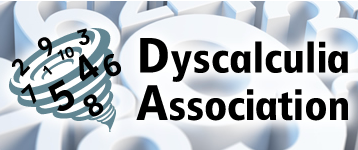Overview of dyscalculia
The UK Government defines dyscalculia as:
"A condition that affects the ability to acquire arithmetical skills. Dyscalculic learners may have difficulty understanding simple number concepts, lack an intuitive grasp of numbers, and have problems learning number facts or procedures. Even if they produce a correct answer or use a correct method, they may do so mechanically and without confidence."
True dyscalculia is thought to be quite rare, but the term is often used to describe anyone who has difficulty with maths.
Common challenges faced by students with dyscalculia
- Understanding the concept of positive whole numbers as indicators of order and size, e.g., the fact that 12 is smaller than 22.
- Judging and keeping track of time - planning time schedules.
- Estimating ‘sensible’ answers.
- Remembering simple arithmetic facts (e.g., 4 x 6 = 24).
- Accurately copying and distinguishing between similar-looking numbers and symbols (e.g., + and x, 6 and 9).
- Carrying out everyday financial tasks, such as giving change and handling a bank account.
- Following a series of instructions or steps in the correct order, e.g., working out a percentage or calculating a long division sum.
- Making sense of wordy maths questions.
- Memorising and recalling specialised maths vocabulary.
- Learning theorems and formulae.
Find out more
- What is Dyscalculia? - Dyscalculia Association (website).
- Dyscalculia - British Dyslexia Association (webpage).
Screening information and checklists
Start by reading ‘What is Dyscalculia?’ by expert, Steve Chinn, and download his Dyscalculia checklist. (However, this is more aimed at teachers and parents of children with dyscalculia.)
Preliminary Diagnostic Test from the Dyscalculia Centre - checklist with a number score suggesting the likelihood of dyscalculia.
Dyscalculia Test for Adults - online test which costs £59.99.
See also ADDitude magazine’s Dyscalculia Test: Symptoms in Adults.
